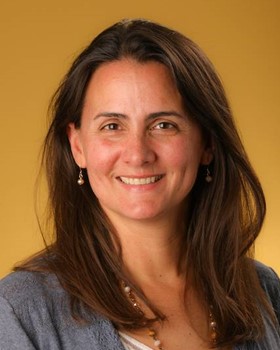Educating Beyond the Nest
 Geography professor Vanessa Slinger-Friedman employs unique learning experiences with
more student engagement through the Scholarship of Teaching and Learning (SoTL), a
growing body of research in higher education that addresses teaching practices. SoTL
is a systematic approach for educators to evaluate different teaching methods, or
pedagogies, to deliver impactful instruction and share the results of this research
in peer-reviewed publications.
Geography professor Vanessa Slinger-Friedman employs unique learning experiences with
more student engagement through the Scholarship of Teaching and Learning (SoTL), a
growing body of research in higher education that addresses teaching practices. SoTL
is a systematic approach for educators to evaluate different teaching methods, or
pedagogies, to deliver impactful instruction and share the results of this research
in peer-reviewed publications.
For those efforts, Slinger-Friedman received the 2016 Regents’ Scholarship of Teaching and Learning Award, one of the highest honors for faculty at Georgia colleges and universities.
“Being an educator led me to want to study my research methods and figure out which ones are the most effective,” said Slinger-Friedman. “I saw the anecdotal impact of being intentional in my teaching when I created dynamic learning environments conducive to active participation and engagement in experiential opportunities.”
To promote such engagement, Slinger-Friedman has implemented activity-based field trips into her geography courses at Kennesaw State. In her course on local and global sustainability, she has taken her students to various sites that promote sustainability practices. They have visited the West Rock Recycling facility, Keep Cobb Beautiful, and Southface Institute, a nonprofit organization that leads sustainability initiatives in the built environment.
Currently, Slinger-Friedman has teamed up with Jason Rhodes, lecturer of geography, to work with students to design and create a food forest at the KSU Field Station. A food forest is a constructed ecosystem of edible plants to match the conditions and diversity of natural ecosystems.
The development of the 1/8-acre food forest provides the addition of a living learning lab for relevant courses taught across multiple KSU departments, demonstrating the possibilities of sustainable food production to mitigate climate change and promote food security.
“By utilizing SoTL, I have been able to bring environmental education for sustainable development to my students in a more meaningful way,” Slinger- Friedman explained. “My ultimate goal is to enable my students to see how they can get involved and how they can become stakeholders and change-makers in sustainability issues by experiencing and assessing the practice of sustainability in a number of real-world contexts.”
Article courtesy of the KSU Office of Research. For more stories like this, see The Investigator Research Magazine.
KENNESAW, Ga. (Jun 8, 2020) —











